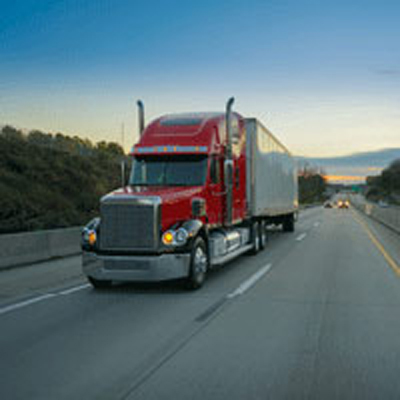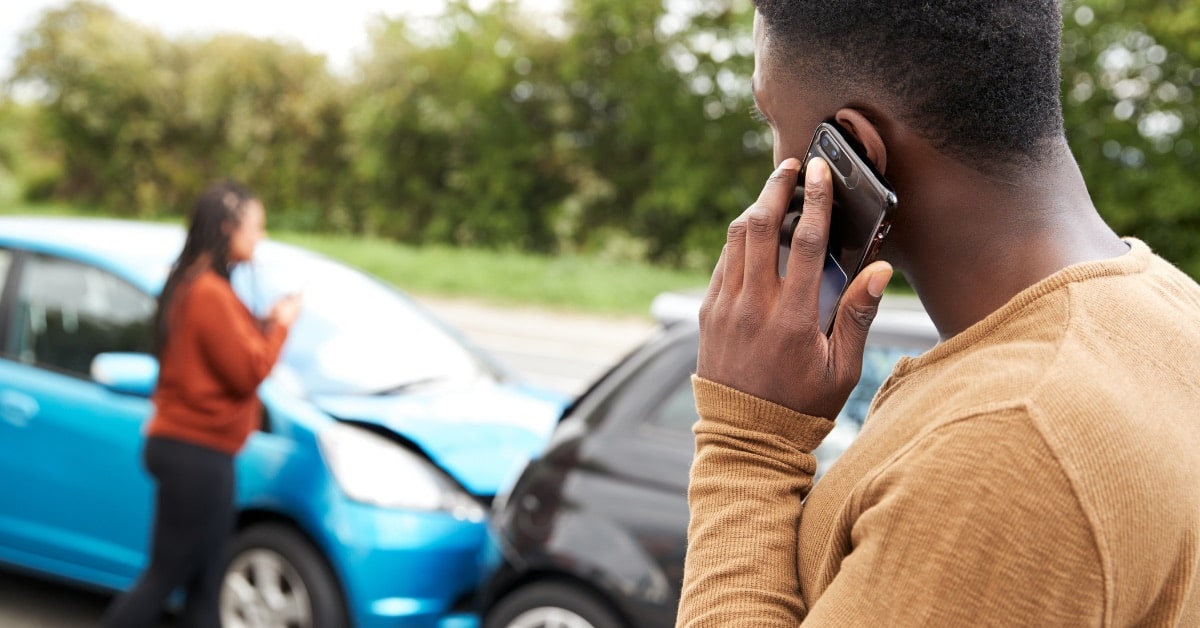Learn how to get the compensation you deserve after a rollover truck accident caused by someone else’s negligence
In South Carolina, commercial trucks are a common sight on highways, interstates, and even local roads. These large vehicles are integral to the state’s economy, transporting goods from ports to distribution centers and retailers throughout the region. However, the prevalence of commercial trucks also brings a heightened risk of road accidents, particularly those involving truck rollovers.
When a commercial truck rolls over, the outcome can be catastrophic, not only for the truck driver but also for the drivers and passengers in cars and other smaller vehicles nearby. Given the sheer size and weight of commercial trucks, a rollover can quickly turn into a multi-vehicle accident with a high likelihood of causing severe injury or even death.
This article will discuss common causes of rollover accidents and explain your rights if you’re injured in an accident with a commercial truck.
What are the odds of surviving a rollover accident?
According to the National Highway Traffic Safety Administration (NHTSA), rollover accidents lead to more fatalities than any other type of vehicle accident, accounting for approximately 1 in 5 fatal crashes on U.S. roadways.
The chance of being involved in a fatal rollover accident is even worse when large trucks are involved. In fact, in 2021, the Insurance Institute for Highway Safety (IIHS) reported that approximately 52% of all large truck occupant deaths were caused by rollover crashes.
Top causes of rollover accidents
According to the Federal Motor Carrier Safety Administration (FMCSA), 78% of rollover accidents result from driver error. Sadly, this means that many of these unfortunate accidents could have been prevented.
Below are some of the top causes of rollover accidents:
- Speeding. Excessive speed, especially around curves, can easily lead to a loss of control and a rollover.
- Distracted driving. Texting and other distractions can cause a driver to react too late to prevent a rollover.
- Impaired driving. Driving under the influence of alcohol, drugs or severe fatigue can impair judgment and reflexes, increasing the risk of a rollover.
- Vehicle defects. Mechanical failures like brake issues or tire blowouts can lead to uncontrolled movements and potential rollovers.
- Weather conditions. Heavy winds, rain or icy conditions can make it challenging to control a large commercial truck, leading to a higher risk of rollover.
- Load imbalance or shifting loads. Poorly distributed or unsecured truck cargo can make the truck unstable, particularly during turns or sudden stops.
- Sudden maneuvers. Quick lane changes or evasive actions can cause the truck to tip over, especially if it’s moving at a high speed.
- Driver inexperience. Inexperienced drivers may not know how to handle a truck in various road conditions, increasing the chance of a rollover.
- Steep slopes or embankments. Losing control on a slope can quickly result in a rollover, especially if the truck is carrying a heavy load.
Understanding these causes can help both truck drivers and the drivers of smaller vehicles take precautions to prevent these dangerous and often deadly accidents.
Federal trucking regulations for road safety
Learn about federal trucking regulations and how noncompliance can affect a truck driver’s liability after an accident.
What are the most common injuries in rollover accidents?
The immense size and weight of commercial trucks amplify the forces exerted during a collision, making injuries more severe than those typically sustained in car-to-car accidents. Here are some of the most common injuries that can occur:
- Traumatic brain injuries (TBI). The impact of a rollover collision can cause the brain to move within the skull, leading to concussions, cognitive issues or more severe brain damage.
- Neck and back injuries. Whiplash and other soft tissue injuries are common, often requiring extensive physical therapy or surgical procedures.
- Amputations. The extreme forces involved in a rollover truck crash can lead to such severe damage to limbs that surgical amputation becomes necessary. In some cases, the limb may be severed during the accident itself.
- Fatalities. Given the severe nature of these accidents, rollover accidents can often result in immediate or subsequent death.
- Spinal cord injuries. Rollover accidents can exert extreme forces on the spine, leading to paralysis or other long-term mobility issues. Explore your legal options for spinal cord injuries in South Carolina if you’ve been affected.
- Psychological trauma. Beyond the physical injuries, survivors often experience post-traumatic stress disorder (PTSD), anxiety and other emotional and psychological conditions.
- Broken bones. The sheer force of the impact in a rollover accident can break or shatter bones, especially in the limbs, chest or face.
- Internal injuries. Organs like the lungs, liver or kidneys can be punctured or bruised, often requiring immediate surgical intervention.
- Lacerations and abrasions. Broken glass and metal shards can cause severe cuts, and friction burns can result from sliding across surfaces during the accident.
- Burn injuries. Fuel tanks can rupture during a rollover, leading to fires that can cause severe burn injuries to people in nearby vehicles.
Prompt medical attention is crucial following such accidents, as some injuries (like internal organ or brain injuries) may not present symptoms immediately but can become life-threatening if untreated. The long-term effects can often involve years of medical treatment and may result in permanent disability.
Fatal auto wrecks: What to do when you’ve lost a loved one in South Carolina
Everything you need to know about filing a wrongful death lawsuit in South Carolina.
How do you prove liability in a rollover truck accident?
In a rollover truck accident involving a commercial truck, proving liability often hinges on demonstrating that the truck driver or the trucking company failed in their duty of care to act responsibly on the road.
“Duty of care” refers to the legal obligation one party has to avoid causing harm to another. For commercial truck drivers, this duty includes following traffic laws, adhering to federal trucking regulations, and exercising general caution and expertise when driving large vehicles.
To prove liability in such cases, the following elements must be established:
- Duty of care. First, you must show that the truck driver or the trucking company had a duty of care toward you, which is generally accepted in cases involving road accidents.
- Breach of duty. Next, you must collect evidence to demonstrate that the truck driver or the trucking company breached this duty of care. This could be through speeding, reckless driving, maintenance failures, or violations of federal trucking regulations.
- Causation. After that, you must be able to link the breach of duty directly to the rollover accident. Evidence could include witness statements, traffic camera footage or expert testimony that clearly indicates that the breach led to the accident.
- Damages. Finally, you must present evidence of the physical, emotional or financial damages you suffered as a result of the accident.
A thorough investigation, possibly involving accident reconstruction experts, medical practitioners and legal advisors, is often needed to build a robust case for liability in a rollover truck accident.
What if an accident was partly my fault?
South Carolina uses a legal doctrine called “modified comparative negligence” to determine compensation in personal injury cases, including car accidents. Under this doctrine, the amount of compensation the injured party receives is reduced by the percentage of their own fault in contributing to the accident. Additionally, they must be 50% or less at fault to recover any compensation.
Here’s an example: Let’s say you’re involved in a rollover accident and are found to be 20% at fault because you were going 5 miles over the speed limit at the time of the accident. If your award would have been $100,000, your final compensation would be $80,000 (or 20% less) in this scenario because of your degree of fault.
Because your compensation can be significantly reduced if you’re found to be even partially at fault for an accident, it’s critical to consult an experienced personal injury attorney as soon as possible after an accident to ensure your rights are protected.
Common defenses used by personal injury defendants
Advice on how to overcome common defense strategies to win your personal injury case.
What types of compensation am I entitled to after a rollover accident?
In a rollover truck accident, the injured party may be eligible for various types of compensation, broadly categorized into economic and non-economic damages.
Economic damages are tangible costs that can be easily calculated and may include:
- Medical expenses (past and future)
- Lost wages and loss of future earning capacity
- Property damage
- Rehabilitation costs
Non-economic damages are intended to compensate the injured party for immaterial losses that don’t have a specific monetary value, such as:
- Pain and suffering
- Emotional distress
- Loss of companionship or consortium
- Permanent disability or disfigurement
In some extreme cases involving gross negligence or reckless behavior, punitive damages may also be awarded to punish the responsible party and prevent others from taking similar actions in the future.
The types and amount of compensation you may be entitled to will depend on the specifics of the accident, the extent of your injuries and your degree of fault.
Who else may be liable in a rollover truck accident besides the driver?
In a rollover truck accident, multiple parties other than the driver could be held liable, depending on the circumstances surrounding the incident. Here are some of the potential parties that may share in the liability:
- Trucking company. The company that owns the truck or employs the driver could be liable for negligent hiring practices, poor training or pressuring drivers to meet unrealistic schedules, which may lead to reckless driving.
- Cargo loaders. Improperly loaded or secured cargo can make a truck unstable and more prone to a rollover. The individuals or companies responsible for loading the truck may be liable if it’s proven that the cargo contributed to the accident.
- Truck manufacturer. If the rollover was caused by a mechanical failure, such as a brake malfunction or tire blowout, the manufacturer of the truck or the defective part could be held responsible.
- Maintenance providers. If the truck was not adequately maintained, the party responsible for its maintenance could be held liable for any mechanical failures contributing to the rollover.
- Local or state governments. Poor road conditions, a lack of signage or inadequate road design can contribute to a rollover accident. In such cases, the governmental body responsible for road maintenance may be held liable.
- Other drivers. Sometimes, the actions of other drivers can force a truck into a situation where a rollover is more likely. For instance, a car cutting off a truck too closely may cause the truck driver to swerve and lose control.
Determining liability in a rollover truck accident can be complex and may require extensive investigation, including accident reconstruction, examination of logbooks and expert testimony. An experienced truck accident attorney can help you determine which parties may be liable in your case so you can pursue maximum compensation.
If you were injured in a rollover truck accident, our Columbia truck accident attorneys can help
Navigating the aftermath of a rollover truck accident can be complicated, especially given the severe and often catastrophic injuries that can result. These types of accidents frequently lead to long-term health problems that often require extensive medical care and may prevent the injured party from returning to work.
Having an experienced attorney by your side is essential to ensuring you’ll get the compensation you need for your medical treatment and financial security for years to come.
At Chappell, Chappell & Newman, our personal injury attorneys have more than 30 years of experience helping injured South Carolinians recover maximum compensation after an accident caused by someone else’s negligence. We can give you an estimate of how much your case should be worth and handle all negotiations with the at-fault party (or parties) so you can focus on your recovery.
Contact us today for an absolutely free consultation to learn more about your rights.
References
Cargo Tank Truck Rollover Prevention | FMCSA. (n.d.). Www.fmcsa.dot.gov. https://www.fmcsa.dot.gov/rolloverprevention
Characteristics of Fatal Rollover Crashes. (2002). https://crashstats.nhtsa.dot.gov/Api/Public/ViewPublication/809438
Fatality Facts 2017: Large trucks. (2017). IIHS-HLDI Crash Testing and Highway Safety. https://www.iihs.org/topics/fatality-statistics/detail/large-trucks



